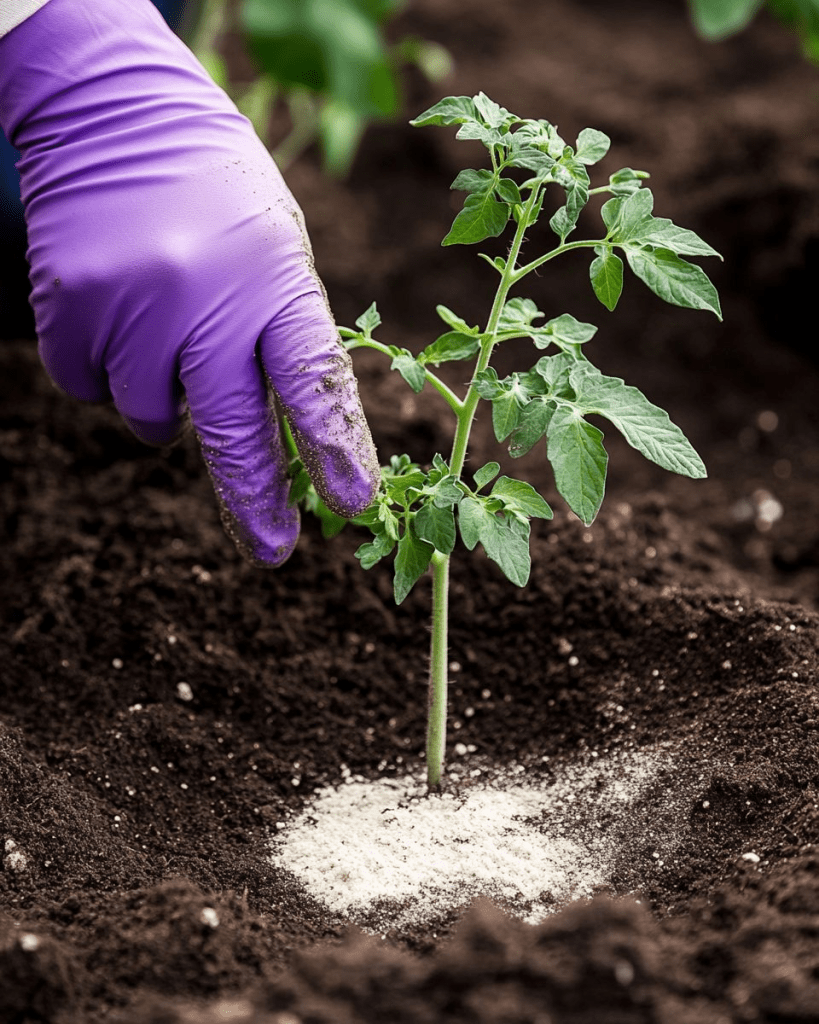
Epsom salt, chemically known as magnesium sulfate, has long been a staple in the gardening world. Its popularity stems from its ability to enhance plant growth and health with minimal effort. Unlike table salt, Epsom salt is not sodium-based, making it safe for plants when used appropriately.
Gardeners appreciate its versatility, as it can be used in various ways to address common gardening challenges. Whether you’re a novice or an experienced gardener, keeping a healthy supply of Epsom salt can be a game-changer for your garden.
Understanding the Composition of Epsom Salt
Epsom salt is composed of magnesium, sulfur, and oxygen, forming the compound magnesium sulfate (MgSO4). Magnesium is a crucial element for plant growth, playing a vital role in photosynthesis as it is a core component of chlorophyll. Sulfur, on the other hand, is essential for the synthesis of amino acids, proteins, and enzymes. These elements work together to promote healthy plant development, making Epsom salt an effective supplement for gardens.
Enhancing Plant Growth with Magnesium
Magnesium is essential for photosynthesis, the process by which plants convert light into energy. It is a central atom in the chlorophyll molecule, which means that without sufficient magnesium, plants cannot effectively capture sunlight. By adding Epsom salt to your garden, you ensure that your plants have access to this critical nutrient, leading to lush, green foliage and robust growth.
Improving Seed Germination Rates
Epsom salt can also play a role in improving seed germination rates. Magnesium is known to strengthen cell walls and improve the uptake of other nutrients, which can be particularly beneficial during the early stages of a plant’s life. Soaking seeds in a solution of Epsom salt before planting can help them sprout more quickly and develop into strong seedlings.
Boosting Nutrient Absorption
Epsom salt aids in the absorption of key nutrients like nitrogen, phosphorus, and potassium. Magnesium acts as a carrier, helping plants take up these nutrients more efficiently. This improved nutrient absorption can lead to healthier plants that are more resistant to disease and environmental stressors.
Deterring Pests Naturally
Epsom salt can also serve as a natural pest deterrent. Its granular texture can be sprinkled around plants to deter slugs and snails, which dislike crawling over the rough surface. Additionally, the sulfur component of Epsom salt can help repel certain insects, reducing the need for chemical pesticides.
Preventing Root Shock in Transplants
Transplanting can be a stressful process for plants, often leading to root shock. Epsom salt can help mitigate this by providing magnesium, which strengthens cell walls and aids in water uptake. Adding Epsom salt to the soil or using it as a foliar spray can help transplants establish more quickly and recover from the shock of being moved.
Revitalizing Yellowing Leaves
Yellowing leaves can be a sign of magnesium deficiency, a common issue in many gardens. Epsom salt can be used to address this problem by providing an immediate source of magnesium. A foliar spray made from Epsom salt dissolved in water can be applied directly to the leaves, allowing for quick absorption and visible improvement in leaf color.
Enhancing Flower Blooming
Magnesium is not only important for foliage but also plays a role in flower production. By ensuring that plants have adequate magnesium, Epsom salt can help promote more abundant and vibrant blooms. This is particularly beneficial for flowering plants like roses, which are known to respond well to Epsom salt treatments.
Improving Fruit and Vegetable Yield
For fruiting and vegetable plants, Epsom salt can enhance yield by improving overall plant health and nutrient uptake. Magnesium supports the development of fruit and seeds, leading to larger and more plentiful harvests. Gardeners often use Epsom salt as a supplement for tomatoes, peppers, and other fruiting plants to boost production.
Balancing Soil pH Levels
While Epsom salt itself does not significantly alter soil pH, it can help balance nutrient availability in the soil. Magnesium and sulfur can improve the soil’s overall health, making it easier for plants to access the nutrients they need. This can be particularly useful in soils that are slightly acidic or alkaline, where nutrient availability may be compromised.
Using Epsom Salt as a Soil Amendment
Epsom salt can be used as a soil amendment to improve soil structure and nutrient content. It can be mixed into the soil before planting or applied as a top dressing throughout the growing season. This flexibility makes it easy for gardeners to incorporate Epsom salt into their regular gardening
routine, ensuring that plants receive the benefits of magnesium and sulfur.
onclusion: The Versatility of Epsom Salt in Gardening
Epsom salt is a versatile and valuable tool for gardeners, offering a range of benefits from enhancing plant growth to deterring pests. Its ease of use and effectiveness make it a worthwhile addition to any gardener’s toolkit. By keeping a healthy supply of Epsom salt on hand, gardeners can address common issues and promote a thriving, healthy garden.


